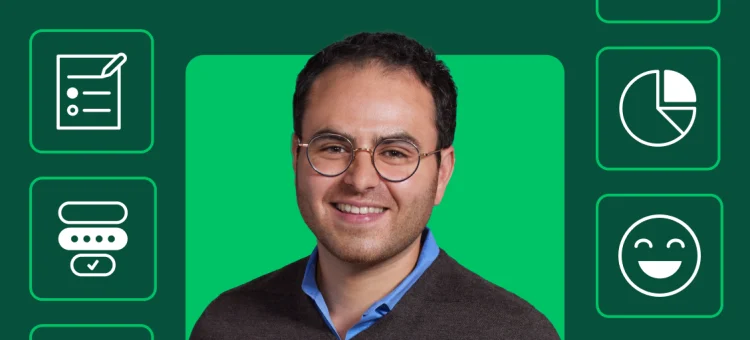Rachelle Poth, Spanish teacher at Riverview Junior Senior High School, understands the value of listening—especially when it comes to her students. We’re excited to have Rachelle here on the blog to share how surveying her students gives them the opportunity for honest self-reflection and provides her with the feedback she needs to build, strengthen, and improve her course curriculum.
Welcome, Rachelle! Can you tell us about your approach to student feedback?
Listening to my students and understanding where they’re coming from is incredibly important to me. Their direct input guides my teaching and helps me focus on what they want in my Spanish instruction classes and what they don’t want.
I started using SurveyMonkey because I needed an easy way to conduct a quick assessment of my students. And on their end, I wanted them to feel completely comfortable in sharing this type of personal feedback with me. Sending out surveys via web links was the perfect way to accomplish that.
Walk us through your student feedback surveys. What are you looking to learn and how do you act on students' responses?
The student feedback surveys that I created started off small. They were short and very simple. I began by asking basic questions about their overall study habits and how they prepared for tests and midterm exams.
My next questions were written to encourage self-reflection. Where did they think their strengths were? Weaknesses? How did they feel before taking a test and then how did they feel after finishing the test? Getting their frank opinions allowed me to adapt the structure of my class to their individual needs as well as to their needs as a class. Surveying students was also a great way to collect their honest opinions on some of the outside educational resources we use such as Quizlet, Blendspace and Edmodo.
Related reading: Engage your students with polls and surveys.
Can you share any other creative ways you've used SurveyMonkey?
I would create short pop quizzes (who doesn’t love a good pop quiz?) about students’ recent reading assignments or I would have them answer brief survey questions related to the vocabulary or verbs we're learning. It was very easy to create and then duplicate quizzes for all of the different levels of Spanish that I teach.
And SurveyMonkey was a go-to resource for outside my classroom too. For technology conference presentations, I sent surveys to my fellow attendees asking various topical questions and was able to show results instantly, proving just how quickly surveys can be designed, implemented and then shared.
What’s next?
Midterm exams! I’ll continue to rely on SurveyMonkey in my Spanish classes, particularly after midterms, and then periodically in order to see how my students are feeling about their strengths and weaknesses in class. The data that I receive will also guide me in searching for additional outside resources for those kids who self-indicate that they need more help.
-
Thanks so much for sharing your survey story with us, Rachelle—and best of luck to those awesome multi-lingual students of yours!
Want to learn more about how SurveyMonkey helps educators and educational institutions? Check out our survey templates for students and faculty and our K-12 Parent Survey template, created with the Harvard Graduate School of Education.



